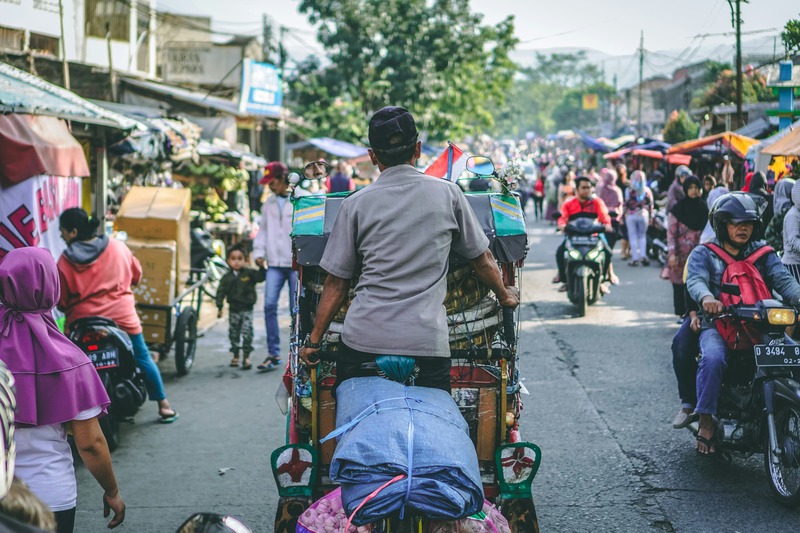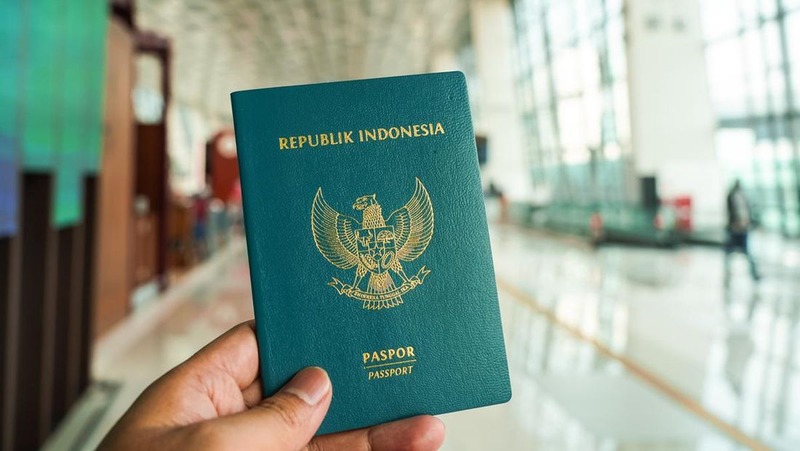In Indonesia, citizenship laws are grounded in the principles of jus soli (citizenship by birthplace) and jus sanguinis (citizenship by bloodline). Therefore, Indonesian citizens are forbidden to possess dual citizenship.
The Home Affairs Ministry’s Civil Registration Department further justified that if an Indonesian holds another nationality or a valid certificate of nationality from another country in their name, their status as an Indonesian citizen will be revoked. But, why is that?
Indonesia, through Law No. 12 of 2006 on Indonesian Citizenship, only recognises single citizenship while dual citizenship is limited.
Those categorised in the latter are children born from a mixed marriage between an Indonesian citizen and a foreign national. However, by age 18, or at the latest 21, the child with limited dual citizenship must choose whether to remain an Indonesian citizen or become a foreign national.
Who are categorised as dual-nationality applicants?
Government Regulation No. 12/2006, Chapter 44, outlines the categories of dual-nationality applicants eligible for permanent citizenship. These include:
Children born to a legally recognised marriage between an Indonesian father and a foreign-national mother.
Children born to a legally recognised marriage between a foreign-national father and an Indonesian mother.
Children born out of wedlock, with a foreign national mother and an Indonesian father, provided the father acknowledges paternity before the child turns 18 or marries.
Children born out of wedlock, with an Indonesian mother and a foreign national father, provided the father acknowledges paternity before the child turns 18 or marries.
Children born to a legally recognised marriage between two Indonesian parents but born outside Indonesia due to specific circumstances.
Children whose biological parent is Indonesian but who were legally adopted by a foreign national step-parent before turning five years old.
What happens to mixed-marriage children?

As of 2022, the government declared that children born from mixed marriages, who are eligible for dual citizenship, are governed by Government Regulation (PP) No. 21 of 2022, which outlines the procedures for acquiring, losing, cancelling, and reclaiming Indonesian citizenship.
This new regulation has been introduced to safeguard the rights of children born before the Citizenship Law was enacted, particularly those who were either not registered or though registered, failed to choose Indonesian citizenship before the deadline.
But there's more! This regulation eases the application process for children of the Indonesian diaspora seeking citizenship. For instance, children who don’t have the necessary immigration certificate such as a Permanent Residency Permit (ITAP) or Temporary Residency Permit (ITAS) can still apply, provided they have a biodata attachment issued by the Department of Population and Civil Registration. In simpler terms, it's easier than ever to become an Indonesian citizen.
And here's a twist - children who may not meet the income or employment requirements for citizenship can still apply, with their parents acting as guarantors. The ultimate aim of this regulation? Giving children facing citizenship challenges a chance to reclaim their Indonesian citizenship status.
How to secure an Indonesian citizenship?
Firstly, parents need to register their children’s dual citizenship before the child turns 18. Dual-citizen children also have the option of obtaining an immigration facility, such as an affidavit worth Rp 400,000. This document, affixed to their foreign passport, signifies their dual citizenship status and brings several immigration perks.
Being exempt from visas, residence permits, and re-entry permit requirements when travelling through Indonesian immigration with their foreign passport are some samples. Hence, parents ought to circle back to our first point.
Children with dual citizenship can hold an Indonesian passport until they turn 21, at which point they must choose one of their parents' nationalities. Say the child has finally come to a decision and that is becoming an Indonesian citizen, applying for an Immigration Certificate (Surat Keterangan Keimigrasian or SKIM) is easier than ever since 2024.
Applicants can submit their requests electronically with fewer supporting documents required. This new policy, aimed at offering more flexibility for children with dual nationality seeking permanent Indonesian citizenship, has a few conditions:
Live in Indonesia for at least five years, which can be confirmed with an academic certificate.
A letter from the ward they live.
If available, an Indonesian-issued passport.
Children with parents of different nationalities can also submit a citizenship bio, issued by the local Department of Population and Civil Registration, as a substitute for the SKIM. However, if the child was born outside Indonesia, and one of their parents is Indonesian, the SKIM is still required.
Will Indonesia ever consider dual citizenship in the future?

Well, it’s up in the air for consideration. Nationwide debate on the need to modernise Indonesia’s citizenship laws to better align with the realities of our globalised world spurred over the years. One was sparked around the Indonesian government's plan to offer dual citizenship to skilled Indonesians living abroad.
In 2024, Former Indonesian Coordinating Minister for Maritime Affairs and Investment, Luhut Binsar Pandjaitan, revealed that the government is considering granting dual citizenship to individuals of Indonesian descent - or former Indonesian citizens - currently residing outside of the country. The goal? To lure more talented professionals back to Indonesia.
Indonesia has struggled with a significant brain drain over the years, thanks to better opportunities presented abroad. Many talented professionals and academics have forfeited their Indonesian citizenship. Between 2019 and 2022, nearly 4,000 Indonesians switched to Singaporean citizenship, according to the Directorate General of Immigration.
This loss of talent may hinder Indonesia’s immense growth potential whereas retaining and attracting global talent can do wonders. By embracing dual citizenship, Indonesia could leverage its vast diaspora of professionals in high-demand sectors - tech, engineering, and finance - to drive its economic and technological progress.
Despite Pandjaitan’s announcement, Indonesian Immigration authorities have yet to offer any further details or responses about the plan to allow dual citizenship for the Indonesian diaspora.




 Mirella Pandjaitan
Mirella Pandjaitan
 Jan 07, 2025
Jan 07, 2025